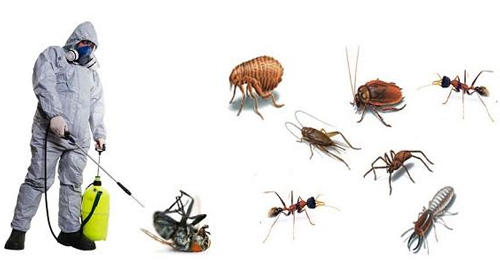In the current world, concern for the ecosystem is increasingly critical than ever, leading many homeowners to look for alternatives to traditional pest control methods. Eco-friendly pest control not only minimizes harm to our earth but also provides impactful solutions for maintaining our homes pest-free throughout the year. As we strive to protect our homes from frequent household pests, it's essential to accept methods that are safe for our loved ones, pets, and the environment.

Here, we will examine the benefits of eco-friendly pest control methods, offering information into organic solutions that can effectively tackle pests while fostering a healthier living space. Starting with understanding the dangers posed by pests like roaches and rodents to talking about the importance of preventive measures, we will guide you through the most effective approach to achieve an environmentally responsible pest management strategy. Together, we can create a pest-free home that is safe for both our families and the planet.
Grasping Typical Household Pests
Household pests appear in multiple forms, each presenting unique issues for property owners. Typical pests comprise ants, spiders. Such uninvited guests not just disturb daily life but may also lead to considerable damage to houses. Identifying Pest Control Queen Creek is the first measure in successfully managing an infestation and keeping a safe and healthy home environment.
Ants, for example commonly invade kitchens in search of food, while cockroaches flourish in warm, dark, and humid places. Rodents tend to gnaw on structures and wires but in addition carry diseases. Termites, typically hidden from plain sight, can silently feast on wood, compromising the integrity of homes. Grasping the habits and preferences of these frequent pests can help in formulating efficient control strategies.
Prevention is key when it comes to household pests. Regular inspections can aid in early detection and management, while eco-friendly pest control methods present safe alternatives to harsh chemicals. Individuals should focus on sealing entry points, maintaining cleanliness, and utilizing natural deterrents. By being proactive in pest management, one can lessen the likelihood of infestations and shield both the home and the environment.
Successful Sustainable Pest Control Strategies
One of the most effective eco-friendly pest control approaches is the use of organic repellents and deterrents. Essential oils such as peppermint, lavender, and tea tree oil have been shown to keep away various pests, including arachnids, ants, and even rodents. By creating sprays using these oils mixed with water, property owners can safely protect their spaces from infestations while ensuring that their loved ones and animals are not exposed to harsh chemicals. Incorporating these solutions into housekeeping practices can also help to maintain a healthy environment without adverse side effects.
Another beneficial method is the use of physical barriers and habitat adjustment. Keeping windows and doors sealed, using mesh, and ensuring that gaps are filled can significantly reduce the likelihood of pests entering your home. Additionally, maintaining a clean and clutter-free environment will lessen pest habitats, making your space less appealing to unwanted visitors. Simple changes, like keeping food in airtight containers and regularly taking out the rubbish, are vital steps in keeping your home pest-free naturally.
Lastly, attracting beneficial insects is a fantastic eco-friendly strategy that can help manage pest populations. Ladybugs and green lacewings, for example, are organic predators of plant lice and other frequent garden pests. Planting flowers that attract these beneficial insects can help create a balanced ecosystem in your garden and lessen the need for chemical interventions. By fostering this natural ecological relationship, gardeners can effectively manage pests while also contributing to a healthier environment.
Year-Round Bug Control Tips
To ensure a bug-free environment all year the year, it is crucial to create a habit of routine maintenance and inspection. Commence by filling any gaps and openings around your home, as these are frequent entry points for different pests. Use weather stripping on doors and windows to eliminate gaps that could allow insects or rodents entry. Periodically inspect your foundation, roof, and attic for signs of wear or weakness, and quickly address any issues to discourage unwanted invaders.
Another crucial aspect of pest prevention is effective sanitation. Keep your home neat and organized, especially in kitchens and dining areas where food particles can invite pests. Consistently dispose of garbage and ensure that food is kept in sealed containers. Additionally, consider using green cleaning solutions that reduce chemical exposure while still being efficient in keeping pests at bay. A neat home not only decreases the risk of infestations but also creates an environment that is not as appealing to pests.
Finally, educate yourself about the periodic pests that may enter your home throughout the year. For instance, stay watchful during spring for ants and termites, while summer often brings mosquitoes and flies. During fall, rodents may seek warmth and shelter indoors, and in winter, it's crucial to guard against pests like cockroaches and bed bugs. By recognizing the patterns of pests and putting into place proactive measures, you can safeguard your home against infestations while adopting eco-friendly pest control methods that are better for your well-being and the environment.
